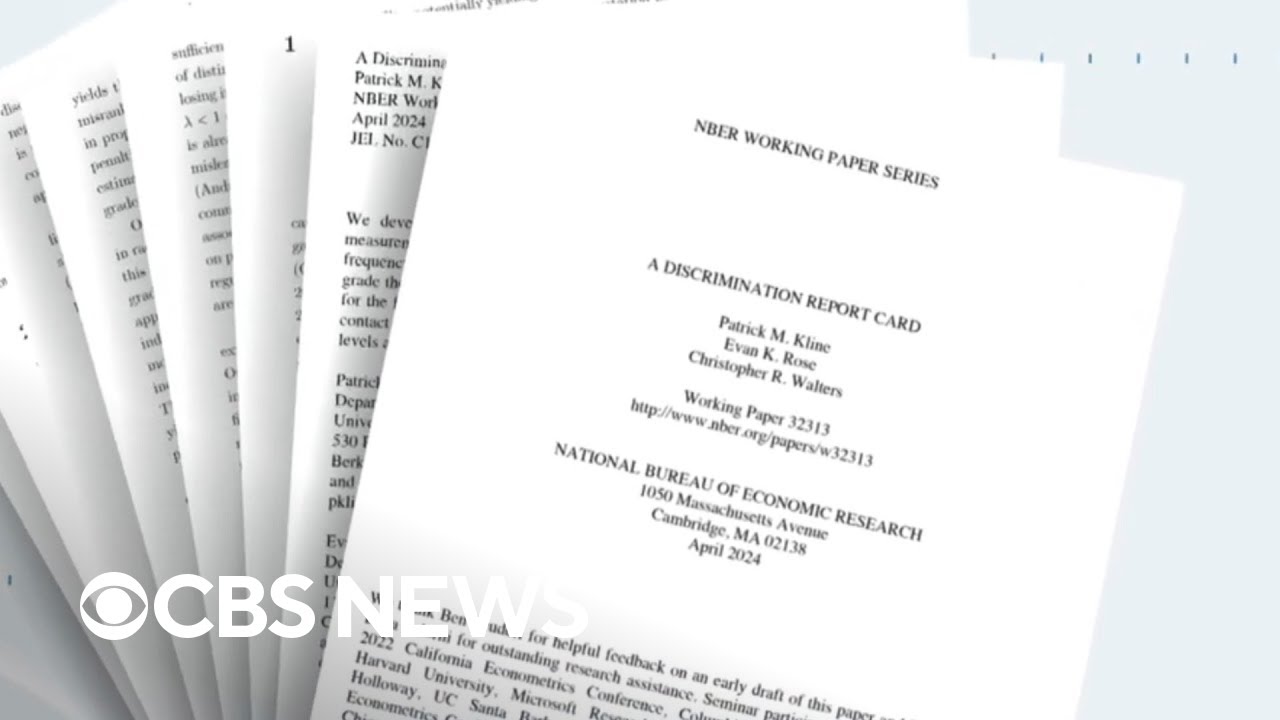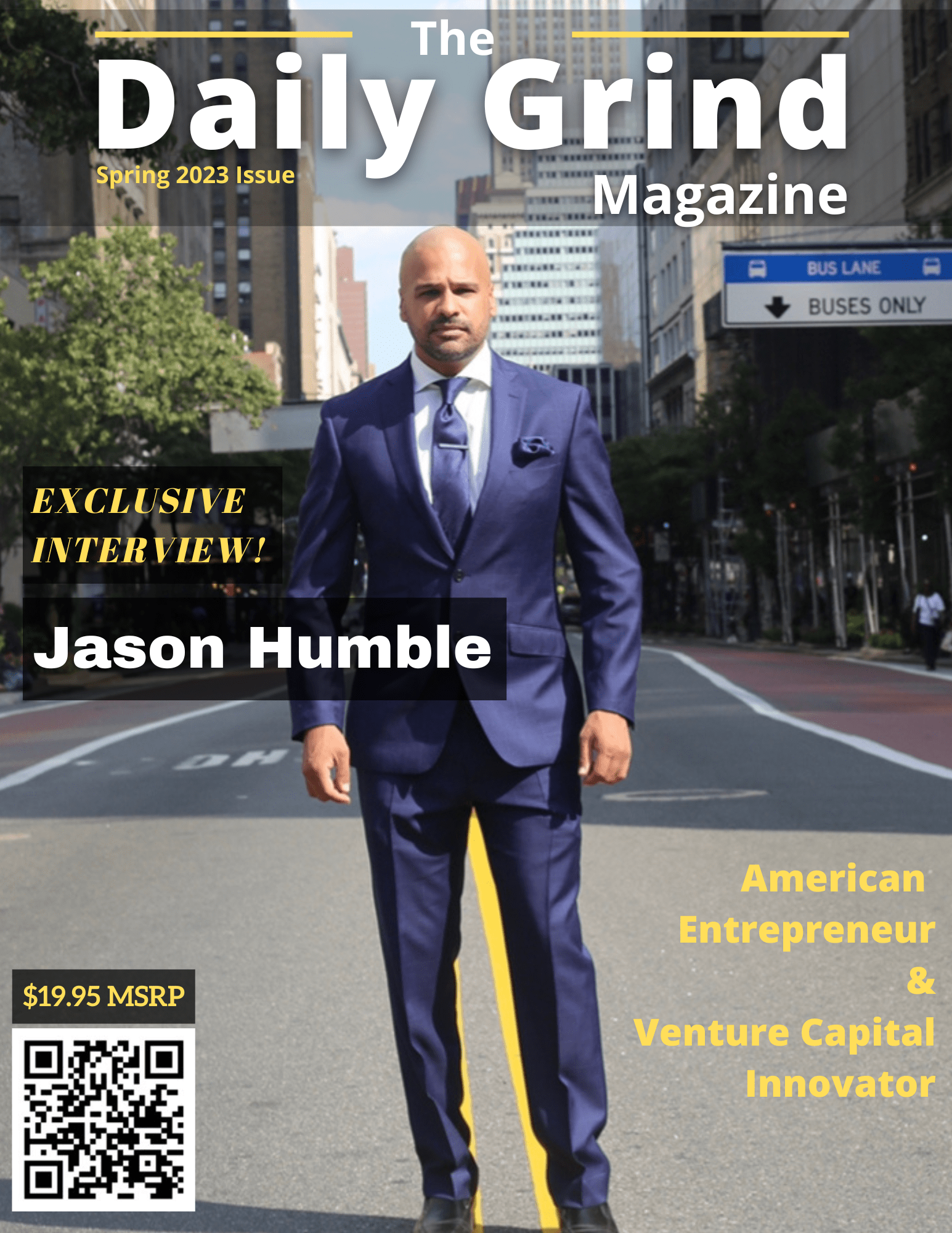A new report suggests some of the Nation's biggest companies are Discriminating against black job Applicants in the largest of its kind Study a group from the National Bureau Of economic research sent out 880,000 Résumés to 97 companies over a threeyear Span between 2019 and 2021 they use fake Resumés but with equal qualifications Changing only personal details to imply An applicant's race age and gender Overall re Searchers found employers Contacted white applicants more than Black ones with the widest Gap being Between company's genuine parts and AutoNation so far neither company has Responded to our requests for comment However genuine parts did tell the New York Times quote we are always Evaluating our practices to ensure Inclusivity and break down barriers and We will continue to do so auton Nation Did not respond to the New York Times Let's bring in Evan Rose now he is a Co-author of this report and is an Assistant economics professor at the University of Chicago Evan great to have You with us on this topic I'm just Wondering from your point of view with All the research you've done what were The most significant findings and what It tells us about the US Labor Market as A Whole great yeah thanks so much for
Having me um so this was a a huge study As you mentioned we said thousands and Thousands of rums to many hundreds of Companies and I think the most important Thing that we learned from the study is That companies seem to really differ in The extent to which they discriminate Based on the characteristics that we're Looking at which was both both race and Gender you highlighted the fact that two Companies appear to discriminate much More than the other companies in our Study I think it's also important to Recognize that some companies appear to Discriminate a quite a bit less or or Even not at all in our study it's just Massive heterogeneity in the economy and The extent to which we see this Discrimination against distinctively Black names now importantly that Discrimination doesn't seem to be random It's concentrated in particular Industries for race discrimination for Example firms that do things with cars And car parts like AutoNation and Genuine parts which owns the Napo NAPA Auto Parts brand seem to discriminate Much more than Firs in other Industries Including Industries like uh food stores And grocery stores for example so we Think this is important because I think It means first of all there might be Something we could do about this from an Enforcement perspective we also think it
Might be it might mean that there are Things firms can do themselves that Might mitigate or exacerbate the type of Discrimination that you could see in Their organization fact that all firms Don't seem to discriminate in the same Way suggest this is just an inevitable Feature of the labor market that there's Going to be discrimination out there Always instead it may be that policies And practices that firms could can adopt How they structure hiring the type of Training they give people might actually Have an impact on these on these Measures and we hope that by releasing These data we can start to learn some of Those policies and practices and share Those across firms in a way that can Help reduce the type of discrimination That we're seeing here it's a Fascinating study extensive research That you've done we mentioned areas in Which were're more likely to Discriminate which companies and which Areas were less Likely yeah so we see less Discrimination on the basis of race Against our distinctively black names And these fictional applications we sent In the food store Industries which I Mentioned earlier you can think about That like grocery stores we see less Discrimination in freight and transport Which include companies like FedEx and
UPS um as well as some in other utility Companies uh and Communications Companies like Charter and and Spectrum So again it's not a universal phenomenon It's not sort of inevitable that there's Going to be discrimination in the types Of job we're studying here it does seem To have strong concentration in Particular firms and and among firms That are concentrated in these Particular Industries and again for our Viewers the resumés were identical the Qualifications and the skills were the Same it was the personal information That you changed how then if if Companies are watching this people who Can actually IM you know impact change What can companies do to address Discrimination and and you know Extinguish this type of Behavior yeah that's a great great Question and hopefully hopefully Something that we can continue to work On in future research you know the short Answer is we don't really know what's Going on behind the scenes at these Companies we see what our uh our Experiment is establishing is that Companies do differ in the sent of Discrimination that the exhibit is Measured in an experiment like ours we Have some clues about what policies and Practices might matter here including Things like how centralized their HR
Operation seems to be some companies it Seems that many individuals are involved In making hiring EST decisions at a Single establishment might be four or Five different people calling back job Applications at one store at other Companies it looks like there might be Just one person who's overseeing hiring For a couple a couple different stores Across a broad broader set of Establishments and what we infer from That is that it seems like companies Where maybe they've invested a little Bit more in professionalizing the hiring Function and offered some kind of Training maybe that's one way in which You can mitigate the type of Discrimination that you'd measure in a In a study like ours but you know one of The reasons why we wanted to do this Project and release these names and talk About which companies are actually in Our list is is to open the way for other Researchers and policy makers and Everyone to dig into What policies and Practices really do seem to dier across These firms and think about what we can Learn about how to how to address this Problem at a more systematic level yeah It's a sobering report but hopefully It's just part of a step in the right Direction Evan Rose we really appreciate You discussing your findings with us uh Joining us from Chicago okay thanks so
Much






